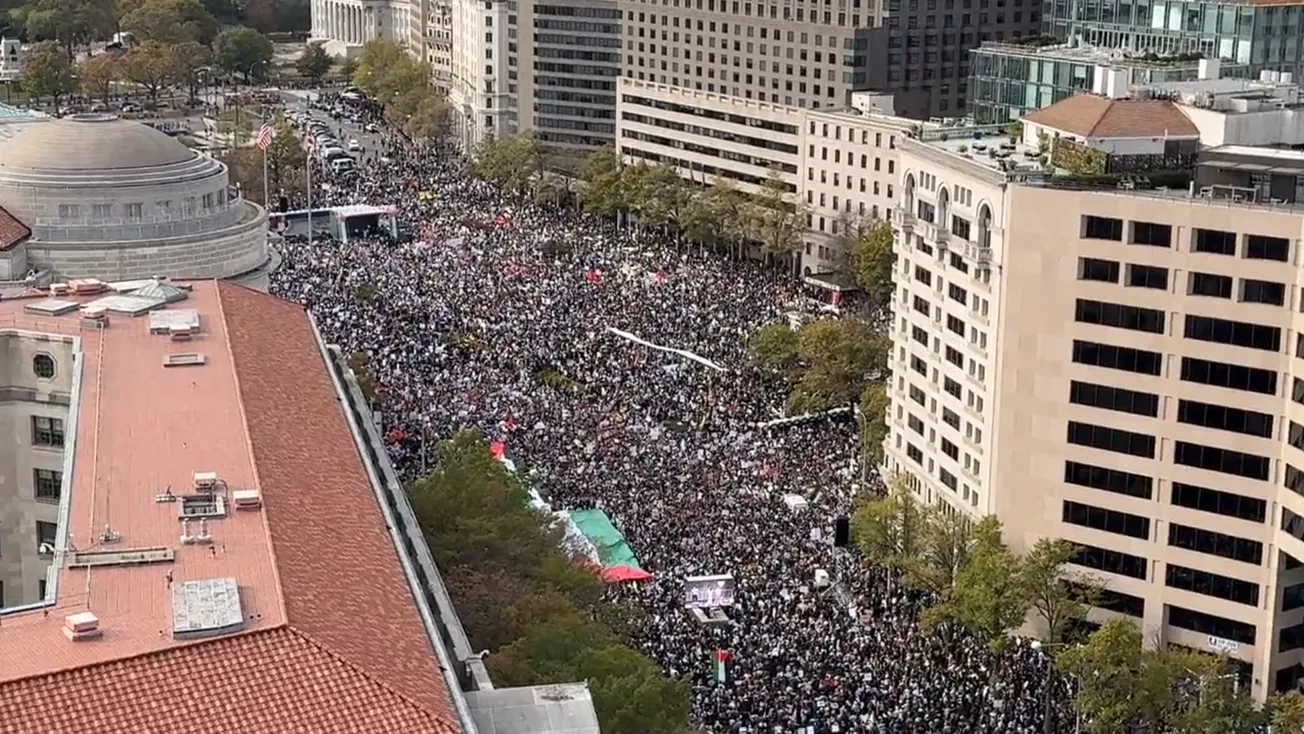Protests reaching into the hundreds of thousands are breaking out around the world in condemnation of the atrocities being perpetrated in Gaza. From London to Paris to Berlin to Washington, D.C., it cannot be explained in terms of already-existing factions or contingencies—something different has been ignited which is only likely to grow as this crisis worsens.
And the crisis is worsening. Israel continues a horrific assault on Gaza, including bombing more refugee camps, schools and hospitals. Maghazi refugee camp in the center of Gaza, to which Israel had been encouraging Gazans to flee to avoid the bombardments in the north, was bombed—killing over 50 and injuring many more. Add to this, the worsening shortage of all medical and other supplies, of which the regional Red Cross director said: “This humanitarian catastrophe is deepening by the hour.” This truly is a modern-day genocide. For comparison: If the same percentage of children in the U.S. were killed as those being killed in Gaza, it would be equivalent to over 700 Sandy Hook school shootings every day for the past 29 days.
At the same time, bestial remarks are coming out of Israel’s leadership. Take Heritage Minister Amichai Eliyahu, who said that dropping an atomic bomb on Gaza “is one of the possibilities.” Though he later walked back these comments, he still insisted that “a forceful and disproportionate response” was required. American officials have still declined to counter or condemn such a heinous kind of policy. Secretary of State Blinken toured the region over the weekend arguing against a ceasefire, despite the growing calls from all of Israel’s neighbors to do so.
Saner heads are needed and fast. The conflict has begun spilling over into other parts of the region. Not only are American and other NATO military deployments being scaled up in the Eastern Mediterranean, but increasingly, volleys of rockets are being fired between Israel and Hezbollah across Israel’s border with southern Lebanon.
Over the month of November, China holds the presidency of the United Nations Security Council, and they have said they intend to use it to bring about peace in this conflict. While they have not detailed their plans as of yet, China has already called for an international peace conference and an immediate ceasefire to stop the conflict. Building on it, the option to bring in economic initiatives exists, providing a basis to elevate the collaboration within the region, and between Israel and Palestine in particular. That is the kind of foundation which a durable peace can rest upon. As Lyndon LaRouche wrote in 1986 on the subject of peace in the Middle East: “Durable agreements on peace and mutual security, among groups of nations, are critical for economic development. Without cooperation in economic development, political agreements lack the durability to survive.”
The majority of the world are calling to end this war, as evidenced in last week’s United Nations General Assembly vote by 120 countries for a ceasefire. Polls are even suggesting that the majority of Americans want a ceasefire, which points out the absurdity of how few Congressional members do. We are in a moment of true breakout, amidst a broader strategic and financial crisis that is causing the entire post-Kennedy assassination world to expire. Will sovereign nations of the world work out a resolution to the recent centuries of empire and colonialism?
Seize the opportunity that exists today—and make sure to laugh at all those stuck trying to be practical!






